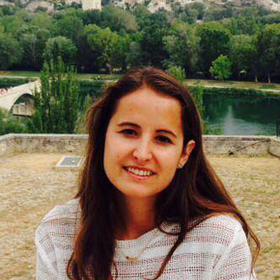

Beatriz
Baselga-Cervera
Dr. Baselga-Cervera’s research merges microbial experimental evolution and bioprospecting as powerful approaches that simultaneously evaluate causal factors and integrate across ecology, evolution, and genetics disciplines. Research topics include: 1) bioprospection of microalgae and bacteria from extreme environments to address questions from adaptation to biotechnology, 2) study of the evolution of complexity in the context of phenotype, genotype, and environment (GxPxE) interactions across the transition towards multicellularity, and 3) integration of experimental evolution and bioprospection to address diversity and ecological questions of freshwater microbial communities (i.e., cyanobacteria and magnetotactic bacteria). Dr. Baselga-Cervera's research tests the nature of microbial interactions, the emergence of complexity, adaptation to extreme environments, how global change steers evolution, and the discovery of new functions, to mention a few. Dr. Baselga-Cervera's research is inherently multi-disciplinarity, often giving rise to biotechnological applications and research knowledge that can help stakeholders and policymakers.
Dr. Beatriz Baselga-Cervera has 10+ years of experience performing community-centered outreach and communication, mainly targeting Spanish-speaking communities. Focus on building positive mentoring-outreach programs and interventions through multi-disciplinary laboratory and field research.
Research statement
I focus on experimental evolution and broadly in the origin of life and complexity questions. I have been honored with the Alfonso Martin Escudero Fellowships to study the origin of multicellularity and, as a fellow of the Philosophy of Science Department at UMN. I am currently contributing to the understanding of the origin and maintenance of multicellularity that will translate into insights from an evolutionary perspective in the problems related to multicellular lifestyle (e.g. immune system or developmental processes).
Additionally, I have the privilege to attend the Biology Interest Group (BIG) discussions about a mutual interest in the history and philosophy of biology.
I am an advocate for bringing science closer to society through several outreach activities, projects, and volunteering initiatives (e. g., contributing in bridging science to non-English speakers (estornuda.me project) or teaching science to children). As a scientist, I am fully committed to contributing to my community through volunteering with the UMN's Postdoctoral Association and involve myself with initiatives about diversity, equity, and inclusion in academia.
Selected publications
C. Garcia-Balboa, B. Baselga-Cervera*, A. Garcia-Sanchez, J.M. Igual, V. Lopez-Rodas and E.Costas (2013). Rapid adaptation of microalgae to bodies of water with extreme pollution from uranium mining: An explanation of how mesophilic organisms can rapidly colonise extremely toxic environments. Aquatic Toxicology, 144– 145: 116– 123. DOI:10.1016/j.aquatox.2013.10.003.​